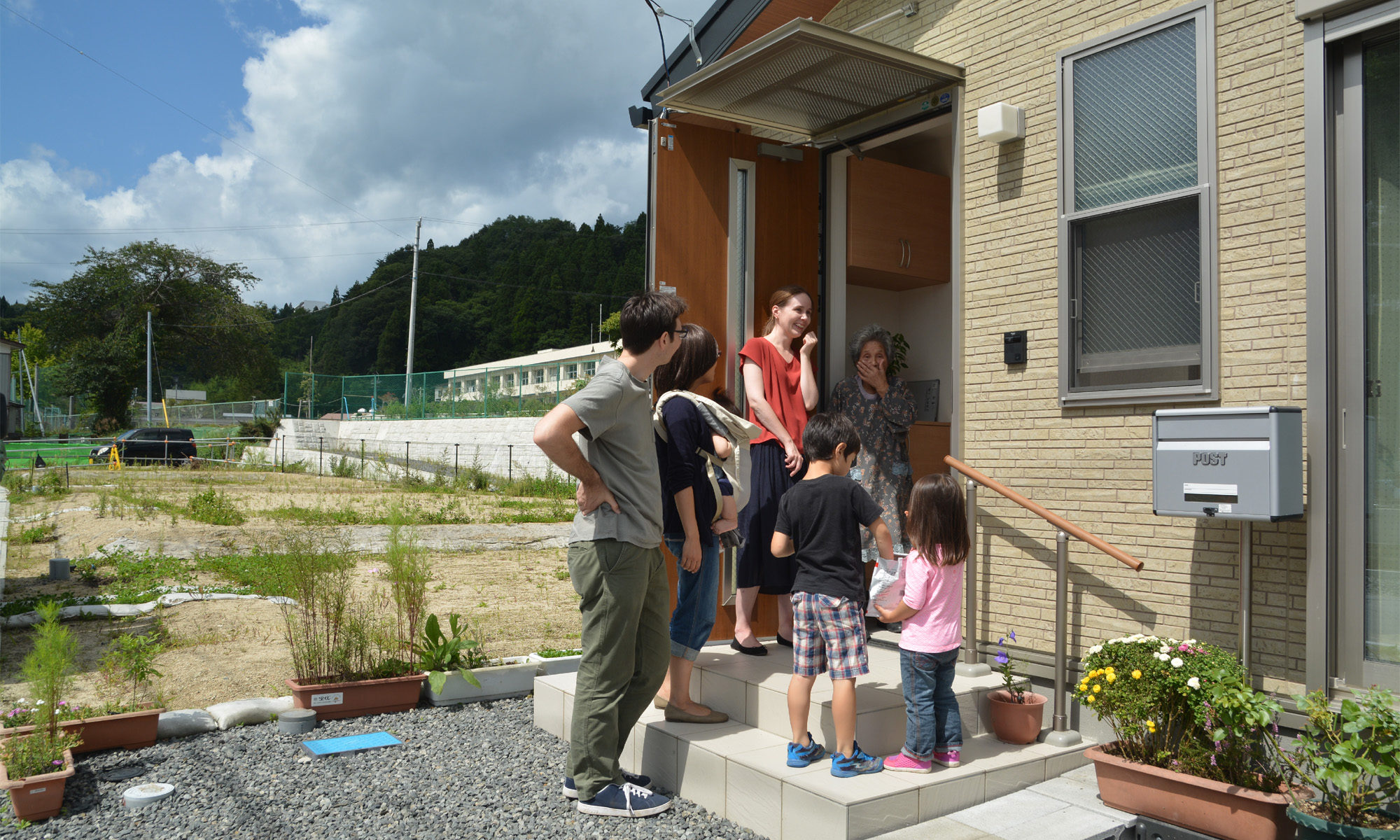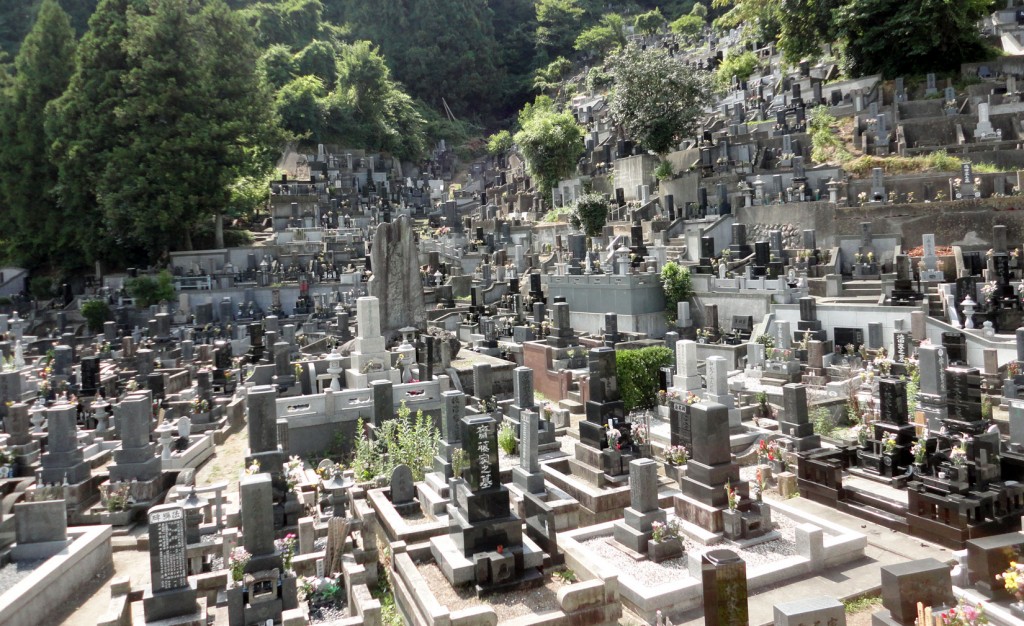Last week we spent time in the Tokyo area, meeting with missionaries, visiting Tomo’s home church, and also spending time introducing Titus to his family over here in Japan. Tomo’s home church is one of our supporting churches, and we shared an update about the direction God is taking us.
It is Obon season in Japan, a time when it is believed that the spirits of dead ancestors return to the homes of the living for a visit. It is traditional for people to return to their family homes and pay a visit to the graves and family alters of their deceased relatives. This presents a difficult situation for Christians in Japan who are challenged to find a way to remain involved in the family without compromising their faith.
The picture above is of a large graveyard. In Japan nearly all graveyards are affiliated with a Buddhist temple. Rather than burying their dead, Japanese traditionally practice cremation, and the ashes of the deceased are stored within a hallow compartment of the gravestone, which is actually a small tomb. A single tomb may hold the remains of many generations of a persons ancestors. Rituals performed when visiting one’s family grave are in many ways similar to practices in the west. The visitor will place flowers in a vase built into the tomb, wash it and clear away any old debris, burn some incense and spend time talking with the deceased. However each of these acts is a highly ritualized religious act which is expected of all visitors to a tomb. This again presents difficulty for Christians. One might wonder if a Christian bringing flowers to a grave, keeping it clean and saying a few words to a deceased relative constitutes an act of practicing another religion; many Christians in the states would do similar things without much of a second thought when visiting the grave of a loved one, but here it is far more difficult to define what is appropriate for a Christian and what is not. Be praying for discernment for Christians here, to know how to appropriately show love and respect to their family, and how to lovingly, yet boldly be a witness for Christ to lead them into a true and right relationship with their Creator.
Thursday we traveled north, taking the bullet train through Fukushima, Sendai, and finally to Hanamashi in Iwate, where Tomo’s parents picked us up and drove us two hours east to their home in Kamaishi, one of the coastal towns severely devastated by the tsunami. Friday we got our first glimpse of the area hit by the tsunami. It has been a year and a half since it hit, and by now almost all the debris has been removed and placed into large piles on the city outskirts. Where there used to be houses and shops and roads there are now only empty lots, overgrown with green grass and flowers. At first glance it looks as though there was simply nothing ever built in this area, but closer inspection reveals the foundations of houses.
This area is far more mountainous than I realized. Most of the Iwate coastline is mountains with cliffs leading right up to the water. Where there beaches and flat land, there the cities and towns were built, and there they were largely washed away. However because there are so many hills, in many places there are structures right on the coast that were untouched because they were built on a hill. There was a three story school situated directly on the coast line, about 100 yards from the water, the waters rose over the roof of the school, yet all the students and teachers escaped unharmed simply by climbing a little ways up the mountain on the opposite side of the school.
As we begin investigating the ministry opportunities in the area, one concern has come up, do to the difficulty in traveling between these isolated cities. The only language school is located two hours inland from the nearest coastal city, and up to 3 hours away from some of the others where there are ministry needs. For the first two years, language acquisition will be my primary goal, because without a solid grasp of Japanese I will be severely limited in my ability to minister long term in the area. However at the same time there are a great many needs in the coastal cities immediately. It is our hope and prayer that God will provide some way for me to both learn Japanese and begin building relationships and partnerships with other Christians serving in the coastal cities. Please be praying that God shows provides such an opportunity. Thus far the only options we have found involve choosing between language acquisition and relationship/partnership building. Be praying that if God wills He will provide an opportunity for us to live close to the areas where He wants us to serve long term, and still be able to have good language acquisition opportunities.

